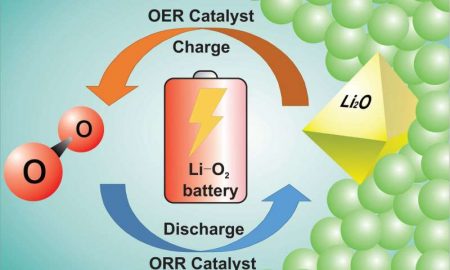August 24, 2018 – I have written about all kinds of alternative battery technologies to lithium-ion since starting this blog. Just type in the term “battery” in the search window on the site and you can spend hours reading about the list of hopefuls which includes:
- aluminum-air
- aluminum-ion
- carbon-ion
- dual-carbon
- flash-organic
- fluid-energy
- lithium-air
- lithium-sulfur
- metal-air
- nickel-metal hydride
- organic-flow
- potassium-ion
- sodium-ion
- solid-state
- zinc-nickel
- zinc-bromine
In addition to the above, engineers and researchers are perfecting a variety of fuel-cell options including hydrogen and solid-oxide technologies. And then there is work being done on super-capacitors capable of instantly holding a charge and replacing batteries entirely.
The list of lithium-ion competitors is long because the reward for commercial success is seen to be huge.
Why are researchers trying to knock lithium-ion battery technology from the top of the storage perch? Because the technology has limitations which include:
- diminishing energy retention over recharge cycles
- interface challenges and volatile chemistry that has led to batteries catching fire
- very few mining sources for the alkali metal
The latest contender that might one day replace today’s lithium-ion battery standard may someday come from work recently announced at Canada’s University of Waterloo. There, chemistry researchers have been working on a lithium-oxygen battery and have reported a number of breakthroughs in the journal, Science,n the last week.
What makes lithium-oxygen more attractive than lithium-ion, is the potential for higher energy density within the battery and lighter weight to power ratios. That would translate to longer running batteries and extended range in operation for electric vehicles (EVs).
So what has been holding back lithium-oxygen batteries?
Chemistry instability is the answer. The interaction of the traditional chemical electrolytes within the lithium-oxygen cells caused degradation of the porous carbon cathodes limiting battery life. The Waterloo researchers began experimenting with different electrolytes and new cathode materials. They switched out the traditional electrolytes, superoxides, and peroxides, and replaced with a stable inorganic molten salt. And instead of the porous carbon cathode they put in its place a bifunctional metal oxide catalyst.
What were the results?
The measure of a good battery is its coulombic efficiency which rates the percentage of electrons within an electrolyte that get transferred through the cathod in each discharge-recharge cycle.
At the university laboratory the battery was tested in a variety of operating environments, and at temperatures at 150 Celsius (302 Fahrenheit) degrees, the researchers identified highly-reversible efficiency across the cathode approaching 100%. They also noted that their use of lithium oxide electrolyte as opposed to lithium peroxide previously used in lithium-oxygen batteries increased energy capacity per weight by 50%.
The inventors of the battery state that commercialization may still be a long way off, but they hope others doing research in the field will take what they have created and run with it to design a commercial battery technology capable of ending lithium-ion industry dominance. Since the Kitchener-Waterloo area is an incubator for new technology startups, I suspect we will soon see a new battery storage company furthering the commercial application of this technology breakthrough.

















[…] goal of 50% in new car sales by 2030. EVs, however, require lithium-ion batteries in the absence of other material alternatives that have yet to be commercially […]